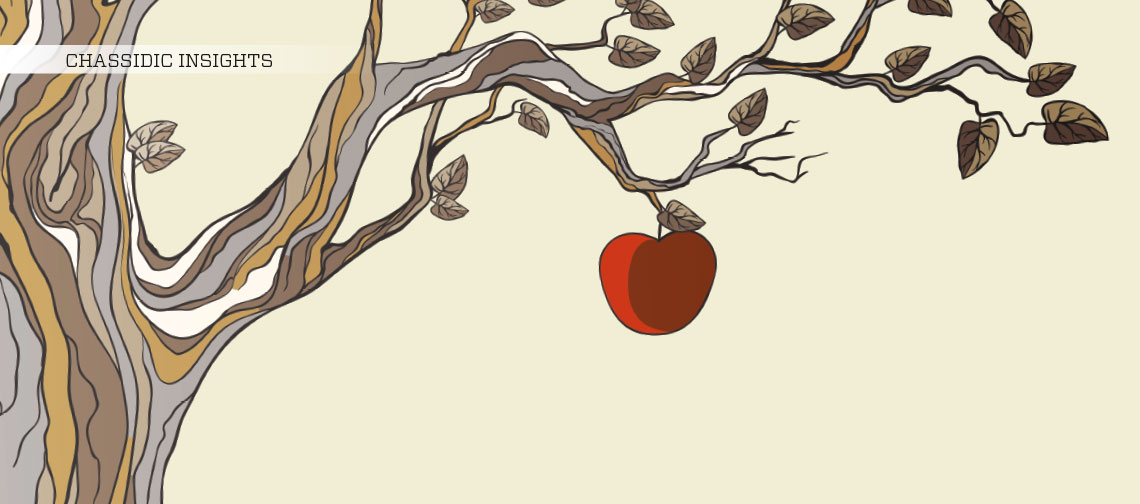At the end of the month of Tishrei, congregations around the world will read Parshas Bereishis, which is first portion in the cycle of Torah readings and filled with teachings relevant for a new year.
This parsha contains the first command issued by Hashem – the command for Adam not to eat from the Tree of Knowledge. According to the Midrash[1], the ban was only for three hours, until the commencement of the first Shabbos. Unfortunately, even for this short time, Adam could not restrain himself.
How could Adam, who was created by G-d himself[2], and heard the command directly from Hashem, not hold back for even this short time?
The answer is: the yetzer hara (evil inclination). The job of the yetzer hara is to make a person stumble and transgress Hashem’s commandments. He argues, he entices, and he tricks – all to cause a Jew to violate one of the Torah’s laws. When the mitzvah is greater or particularly important at a specific time, then the yetzer hara works harder.[3]
According to Chassidus, each neshama has certain mitzvos that have a greater connection to that neshama’s mission on earth.[4] Therefore, the yetzer hara makes those mitzvos more difficult for that person to perform. In addition, Chazal says, “Whenever a person is greater than a colleague, his yetzer hara is greater than he is.”[5]
From these explanations, it is easy to see why Adam faltered and ate from the Tree of Knowledge. Adam was so great, made by the hands of Hashem, Himself, so his yetzer hara was uniquely powerful. Even more so, the prohibition against eating from the tree had great importance and far-reaching consequences that would be suffered by Adam and all of his descendants; therefore, the yetzer hara, under the guise of the serpent, worked doubly hard to cause him to falter.[6]
There is a teaching from the Baal HaTanya that the yetzer hara is best overcome when two friends join forces. Each person has his own nefesh habahamis (instinctual soul) that is concerned only with itself. But each person also has a nefesh haElokis (G-dly soul) that is concerned with the welfare of his friend. When you band together with a friend who is genuinely concerned about your growth in Torah and mitzvos, you have TWO G-dly souls, which can jointly battle the yetzer hara and come out on top.
May we all be blessed with a partner to help us overcome our yetzer hara and together may we be successful in fulfilling Hashem’s commandments and bring the final redemption imminently!
Adapted from Likkutei Sichos, Simchas Torah, 5723
[1]. Bereishis Rabbah 21:7. Also commentary of the Sifsei Cohen to this Torah reading, and the explanations given in Likkutei Torah, at the beginning of Parshas Kedoshim.
[2]. Bereishis Rabbah 24:5.
[3]. Sanhedrin 97a. See also Likkutei Dibburim, Vol. I, Sichas Yud-Tes Kislev, 5693, sec. 5 (Eng. Vol. I, p. 35).
[4]. Tanya, Iggeres HaKodesh, Epistle 7;Kuntres Yud-Beis Tammuz, 5708 (Sefer HaMaamarim 5708, p. 240ff); Sefer HaSichos 5700, Sichos Shushan Purim.
[5]. Sukkah 52a.
[6]. See Zohar, Vol. I, p. 35b; Pirkei d’Rabbi Eliezer, ch. 13.







